- HOME
- Education
- Student's Voice
- 【Student life】Ms. Elvira Abzhanova (Laboratory of Multi-dimensional Imaging)
Student's Voice
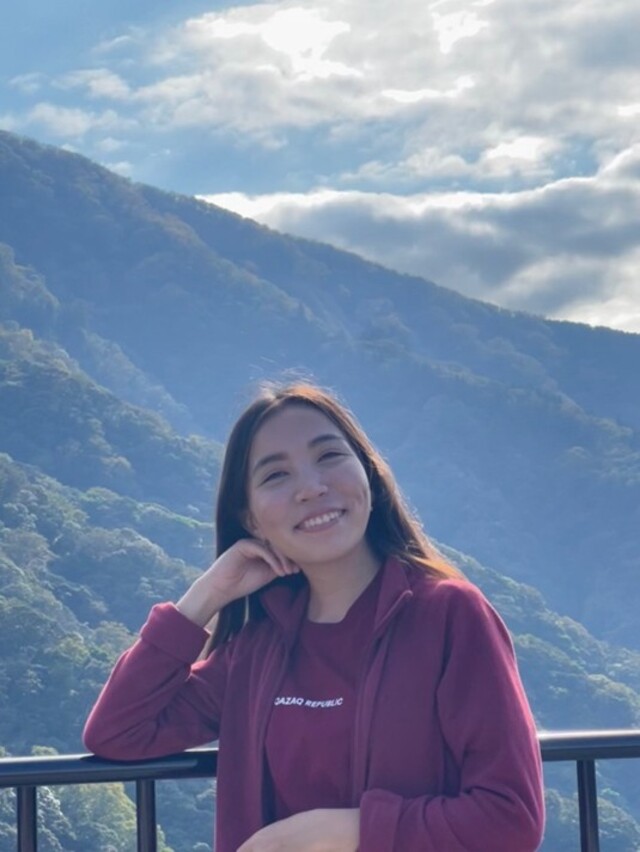
Name: Elvira Abzhanova
Country: Kazakhstan
Lab: Laboratory of Multi-dimensional Imaging
My name is Elvira Abzhanova, I am a PhD student in Mizuno lab. My project aims to understand how TDP-43 expression affects the development of axonal projections in the mouse brain, using axons of the corpus callosum as a model.
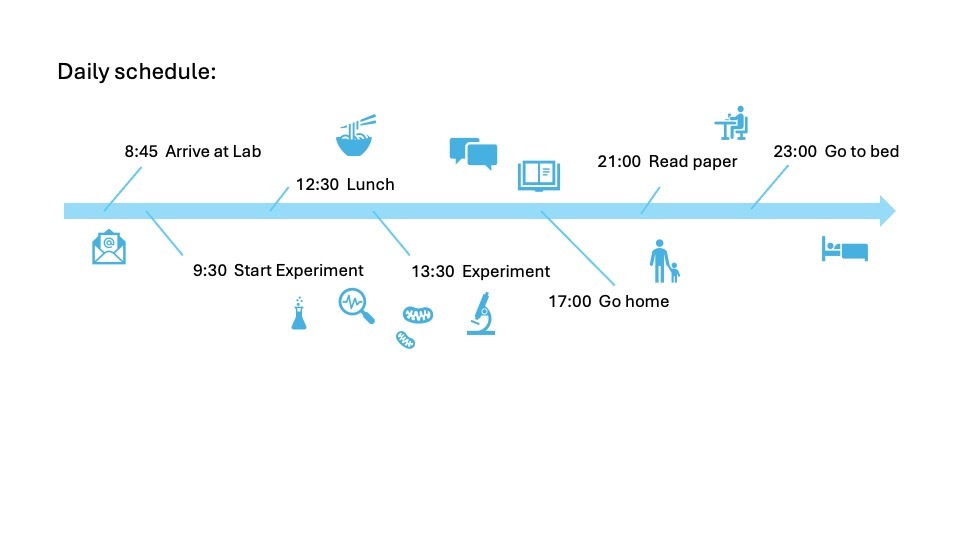
In the morning, I cook breakfast, spend time with my child and take him to the nursery school, after which I arrive at the university around 8:45 am. I usually check the emails and plan of the experiments first, after which I prepare all the reagents and equipment. From 9:30 am to 5 pm I am focused on completing all experimental tasks. I usually do in utero electroporation, a method that allows genes to be delivered directly into the developing brain of a mouse embryo. Using this approach, I express TDP-43 gene in neurons of the cerebral cortex to observe how they affect the formation of axonal projections through the corpus callosum. After the pups are born and reach the required age, I perfuse the animals, remove and fix the brains, and then cryosection the brain to obtain thin tissue sections. I then use confocal microscopy to visualize the brain cortex, corpus callosum and axonal projections, and I quantitatively analyze the data from these images, assessing parameters such as fluorescence intensity, axonal length, orientation, and abnormalities. At 12:30 pm I have lunch with other students, which gives me the opportunity to take a little break and discuss something. After lunch I continue my experiments. In the end of the working day, I pick up my child from the nursery school and devote the evening to my family. In the evening, I also read scientific articles, review protocols, and prepare for the next experiments.
Combining PhD studies and parenthood is not easy, but it is this double workload that teaches me to work effectively, be flexible and disciplined. The support my scientific supervisor, a flexible approach to work organization and a friendly research atmosphere in IRCMS allow me not only to advance a scientific project, but also to maintain a balance between work and personal life.
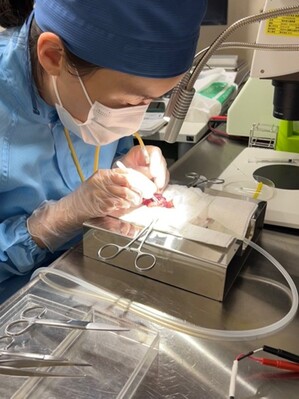
Photo 1: Research photo (in utero electroporation)
Q1. Can you introduce yourself?
My name is Elvira Abzhanova, and I am a PhD student at IRCMS, Mizuno lab.
Q2. What did you study?
I am investigating the role of ALS-related protein TDP-43 on the development of callosal projections in mouse brain. I focus on how altered expression of TDP-43 affects axonal patterning in the corpus callosum that connects two brain hemispheres. I use in utero electroporation to introduce TDP-43 constructs into developing cortical neurons, followed by brain perfusion, cryosectioning and confocal imaging.
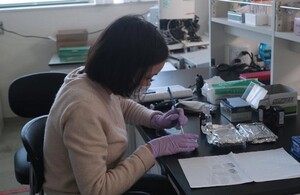
Photo 2: Your Research desk, research photo, lab, experimental scene (brain tissue mounting on glass slides for confocal microscopy)
Q3. What is your most memorable experience during your time at IRCMS?
My most memorable experience was presenting my research at the Annual Japan Neuroscience Society meeting this July. I did oral presentation for the first time and have very productive discussion session as well as received valuable feedback from evaluators.
Q4. What is your future plan?
After completing my PhD, I would like to continue in academia as a postdoctoral researcher or work for pharmaceutical company in drug development. I want to deepen my understanding of axon biology and proteinopathy, and contribute to the development of therapeutic strategies for neurodegenerative diseases.
Q5. What do you enjoy most about your research?
What I enjoy most is the process of discovery. Even small findings feel meaningful when they bring you closer to understanding how the brain works or why it fails in disease. It is also interesting to work with advanced tools and techniques that allow us to visualize the invisible.
Q6. What is most fun part about studying at IRCMS?
IRCMS has a very supportive, collaborative and international environment. I have learned a lot from people from various cultural and scientific backgrounds. The atmosphere is both professional and friendly. Outside the lab, I really enjoy living in Japan, within 3 years I visited beautiful places nearby such as Aso, Kikuchi valley, Amakusa and Takachiho gorge as well as big cities such as Tokyo, Sendai, Kyoto and Fukuoka.
Q7. Any message to students
My advice to students is stay curious, be resilient and don't be afraid to ask questions. Science can be frustrating sometimes, but every failure is a step towards understanding. Also, surround yourself with people who support and inspire you, it makes a big difference.
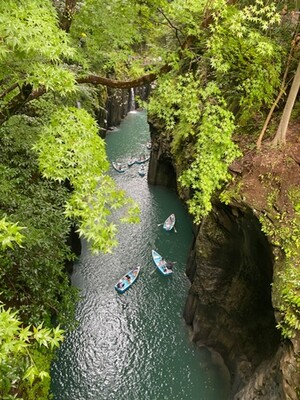
Photo 3: Takachiho Gorge
